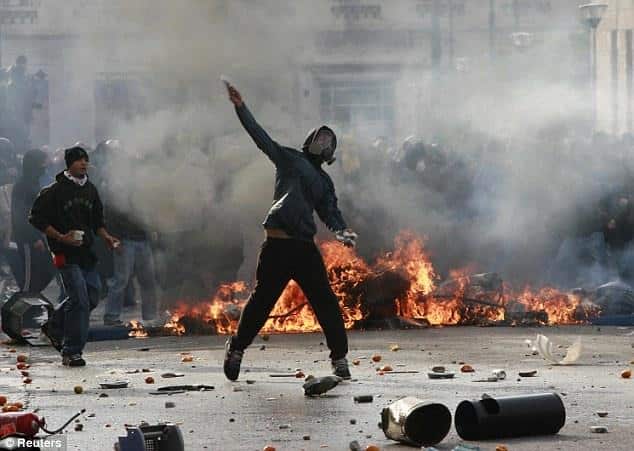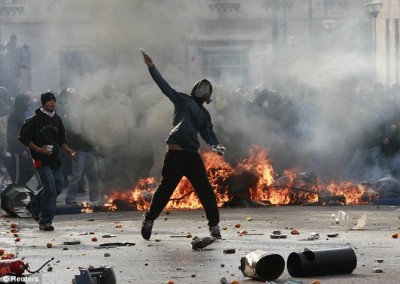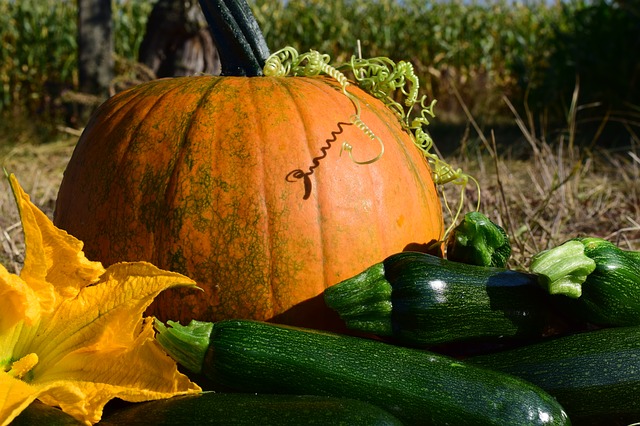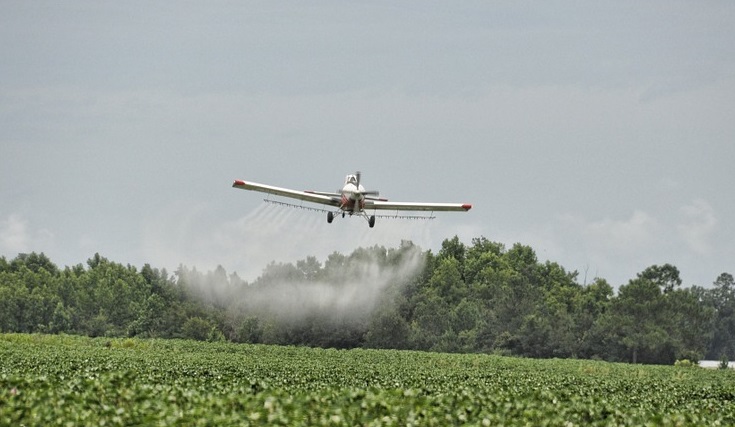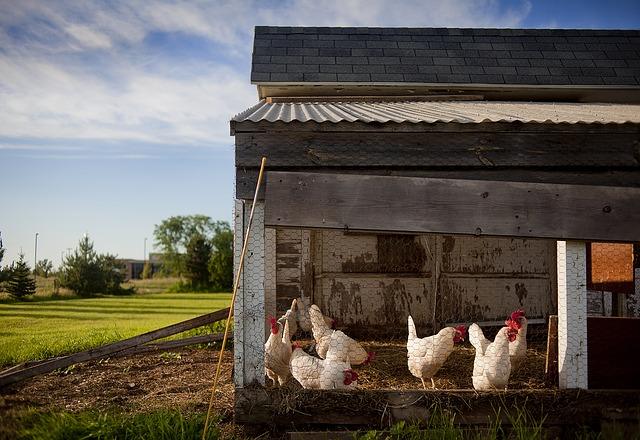There are a multitude of differences between urban and rural preppers, but one thing both groups have in common are concerns about civil unrest. Metropolitan preppers often voice worries about looting and lawlessness on the city streets after either a man-made or natural disaster. Rural preppers are often surrounded by far fewer neighbors, and those they do have are typically possessed of a self-reliant mindset as well. However, rural preppers have concerns about the marauding hordes which would converge upon the countryside during a civil unrest scenario.
Off The Grid News recently sat down with Surviving Doomsday: A Guide for Surviving an Urban Disaster author Richard Duarte to discuss the obstacles facing urban preppers, as well as general survival skills. Duarte is a Miami attorney and firearms expert. He became more focused on living a self-reliant lifestyle after living through a natural disaster. While his methods and tips offer very sound advice for all concerned with enhancing their survival and preparedness skills, they are of particular interest to urban preppers.
During a recent radio interview, I was brutally honest when discussing the folks who will undoubtedly be wandering into my region during a period of civil unrest. Frankly, we don’t want you. I know that sounds cold, especially for a Christian, but during a survival scenario, maintaining order in the community and preserving natural resources is a matter of life and death.
Some preppers favor a communal approach to survival, while others opt for a more secluded immediate or extended family mindset. Duarte exercises the community concept in preparedness consultations. Developing a prepping partnership with a rural group is something all city residents concerned about surviving a disaster should seriously consider. Working in advance with a rural peer to stockpile supplies is far more advisable than merely showing up on someone’s doorstep after society has succumbed to turmoil.
Interview with survival author and firearms expert Richard Duarte:
OTG: Living through Hurricane Andrew in 1992 prompted you to become more aware and concerned about urban disaster survival. Did you feel helpless and/or worried in the aftermath of the natural disaster?
RD: During Hurricane Andrew, a Category 5 storm, I felt completely helpless and alone. Our house was literally torn apart all around us–there was nothing I could do about it and there was no one to call for help. In the aftermath, I couldn’t believe what had just happened and how completely unprepared I had been. That morning my family and I left the rubble of what had once been our home with nothing more than the clothes on our backs.
We were all grateful to be alive, but at that moment, I knew I could never again allow myself to be caught off guard. For a period of time after Andrew, my family and I lived in constant fear of the annual hurricane season, which runs from June 1st to the end of November. Since 1992 I have been researching and studying what works and what doesn’t. After many years of trial and error, I developed easy, practical steps that anyone can take to be prepared. Contrary to popular belief, what motivates most of us to be prepared is not fear, but the desire to not live in fear. Being prepared has actually brought peace of mind back into my life.
An inspiring guide to self-reliance, sustainability, and green living for city dwellers.
OTG: How does your background as an attorney and a firearms enthusiast impact your survival and preparedness habits?
RD: Because of my legal training, and to some extent my personality, I tend to be analytical and logical in my approach to just about every issue or problem I encounter. My survival preparation and planning focuses around what makes sense, and what is reasonable and logical for the circumstances. I sincerely believe that every successful survival plan must contain a strong security and self-defense component; for some of us this includes owning firearms and knowing how to use them safely and effectively. I always recommend proper training to anyone considering owning a firearm.
I realize that law enforcement professionals do a very good job of protecting the public, but sometimes lawful citizens are confronted by violent criminals wishing to do them harm and waiting for the police to arrive may not always be an option. It is every citizen’s right to defend themselves and their loved ones, and that is a right that should never be compromised in any way.
OTG: Like a growing number of Americans, you are focused on achieving a far more self-reliant lifestyle and consider such a responsibility vastly important to your family’s survival. How did developing a preparedness mindset evolve and how did your wife, children, and grandchildren respond to the change?
 RD: As a society, we have become overly reliant on a very fragile and often aging and unreliable public infrastructure. Everything we depend on—from the water we drink to the food we eat to the electricity that powers our homes and business—it’s all, in some way or another, tied to the electrical grid. As responsible members of society, it’s up to us to recognize these vulnerabilities and to prepare accordingly. Doing nothing should never be an option. However, not everybody sees it quite the same way and too many people tend to ignore potential threats until they are personally affected. I am very lucky that my wife and children are all very supportive and appreciative of my efforts. But, I know many people who don’t see the need to make any preparations. Sadly, they are among the majority of the population that still mistakenly believe that the authorities will quickly organize and come to their rescue immediately after any disaster or public emergency.
RD: As a society, we have become overly reliant on a very fragile and often aging and unreliable public infrastructure. Everything we depend on—from the water we drink to the food we eat to the electricity that powers our homes and business—it’s all, in some way or another, tied to the electrical grid. As responsible members of society, it’s up to us to recognize these vulnerabilities and to prepare accordingly. Doing nothing should never be an option. However, not everybody sees it quite the same way and too many people tend to ignore potential threats until they are personally affected. I am very lucky that my wife and children are all very supportive and appreciative of my efforts. But, I know many people who don’t see the need to make any preparations. Sadly, they are among the majority of the population that still mistakenly believe that the authorities will quickly organize and come to their rescue immediately after any disaster or public emergency.
OTG: You currently offer consults and lectures on surviving urban disasters. Creating a sustainable lifestyle is far easier in a rural or even suburban environment. What are the major concerns and stumbling blocks in regard to food production and energy systems faced primarily by urban dwellers?
RD: In any disaster or public emergency, urban dwellers will have a much tougher time securing what I call the core survival elements—food, water, first aid, sanitation, hygiene, shelter, and security. Because of this, many urban dwellers will face the perfect storm in just about any crisis. The majority of the US population now lives in cities, and all the goods and services they consume are brought in from very far away. In other words, people living in urban areas are totally dependent on daily deliveries of food and other consumer products from distant farms, suppliers, and distributors. If the supply chain is somehow compromised, it would be very difficult for city dwellers to survive for any length of time unless they had sufficient stores of emergency food and water, and had the ability to maintain a reasonable level of security. All this would require careful and diligent long-term planning.
OTG: How important should firearms knowledge be to the urban prepper?
RD: Having a proper training is extremely important and should never be neglected. Owning a firearm is a huge responsibility and all lawful gun owners have a non-delegable obligation to get the proper training and to always use, handle, and store their firearms in a safe and responsible manner.
OTG: What advice and tips can you give to residents in cities where strict gun laws may prohibit concealed carry or even possessing specific weapons inside the home?
RD: First of all, always obey the law in your jurisdiction. If you disagree with the existing laws, consider exercising your right as a voter and a taxpayer and make sure that your elected officials know how you feel. If they are unresponsive to you, let your vote and pocketbook do your talking. These are, of course, long-term efforts with uncertain outcomes, especially in the present political climate. In the meantime, however, you should consider other alternatives, including non-lethal forms of self-defense. Often the best fight is the one that never happens. As such, most of your efforts should always be focused on prevention.
Secure and safeguard your home, always be alert to possible threats, and constantly scan and be aware of your surroundings, even in familiar surroundings. When it comes to personal safety, complacency is your worst enemy. Develop good security habits and stay on alert, even in everyday life. I devote an entire chapter to self-defense and situational awareness in my book, that’s how important it is.


